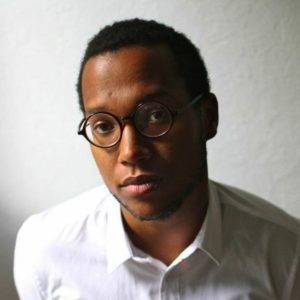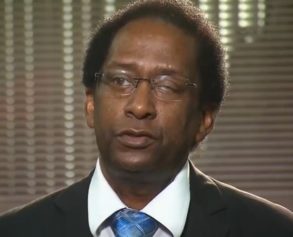At just 30, Branden Jacobs-Jenkins has made a mark as a playwright that has him on a high achievement arc. Three plays in five years have toured the country, all highly acclaimed and with thought-provoking elements of race that fulfill his need to enlighten.
Jacobs-Jenkins’ trilogy of plays that explore various racial dynamics have put him on the theatrical landscape not as an up-and-comer, but someone whose work deserves your attention.
His productions include, Neighbors, in which a family of minstrels in blackface moves next to a contemporary mixed-race family. In Appropriate, a white family discovers their dead father belonged to the KKK. His latest, An Octoroon, is a loose adaptation of a play written more than 150 years ago that deals with identity and race.
“They are all kind of like me dealing with something very specific, which has to do with the history of theater and Blackness in America and form,” he says. “And also, my obligation, as a human being with regards to any of these themes.”
Jacobs-Jenkins’ plays have run in New York and across America, garnering praise along the way. The New York Times chief drama critic, Ben Brantley, named An Octoroon as one of the best plays of last year, a monumental acknowledgement for any playwright, but astonishing for one so young.
Brantley told NPR: “[Jacobs-Jenkins] starts off from self-consciousness, which you would think would be a crippling place for a playwright to begin. But his self-consciousness isn’t just particular; it’s national, it’s universal. And it’s the self-consciousness of realizing that we don’t have the vocabulary, the tools to discuss race.”
While he said he is “obligated” to write about race, Jacobs-Jenkins is ambivalent about being described as a “Black playwright.”
“Because, it’s like, ‘Well what makes me a Black [playwright]?’” he said. “I mean, I guess, it’s that I’m Black, but then, it’s like, why isn’t Sam Shepard a white playwright? It just feels like it’s qualifying something, and I don’t know why or what it’s qualifying exactly.”
What he is sure about is the purpose of theater and his purpose in it.
“Not every person of color is the same shade or looks the same or is the same,” he says. “And that was so profound to me.
“Theater is a place where you’re supposed to transform, where you’re supposed to experience the magic of being something, but not being something. And you know, that’s all about identity, that’s all about race as we’ve received it.”



